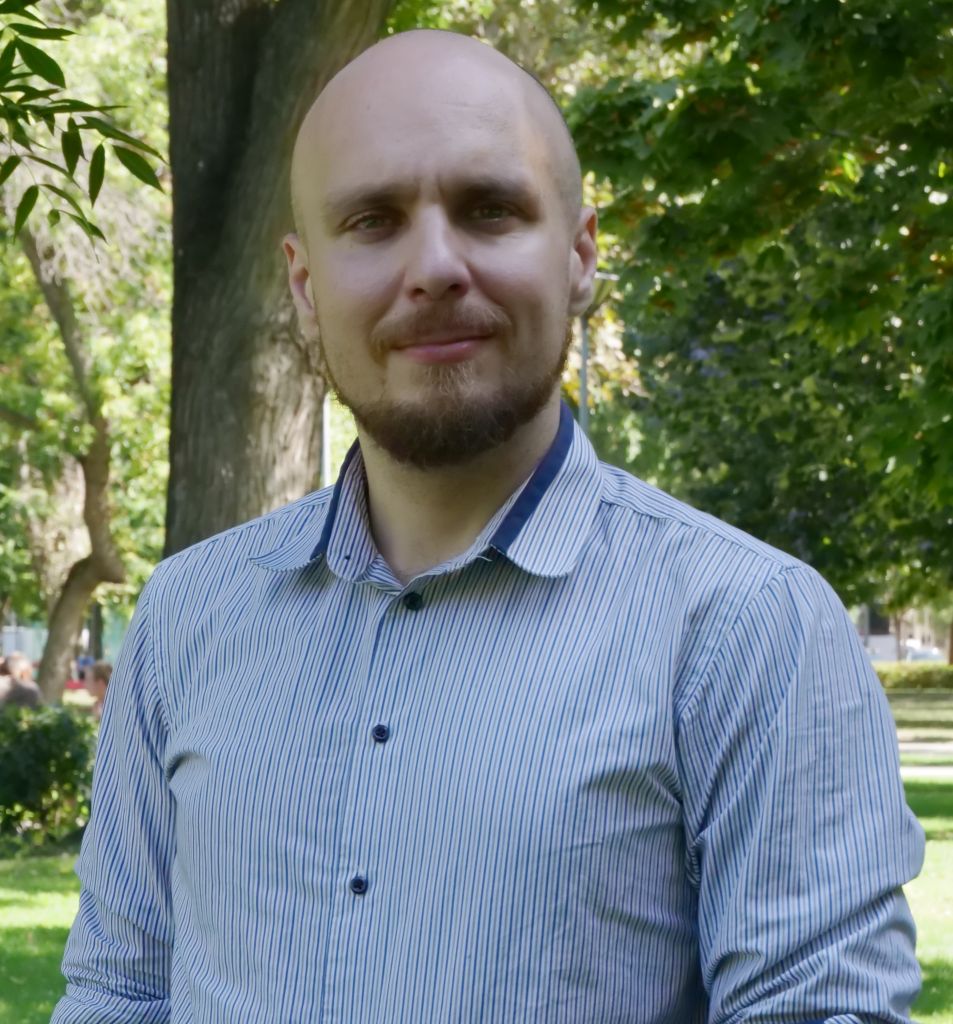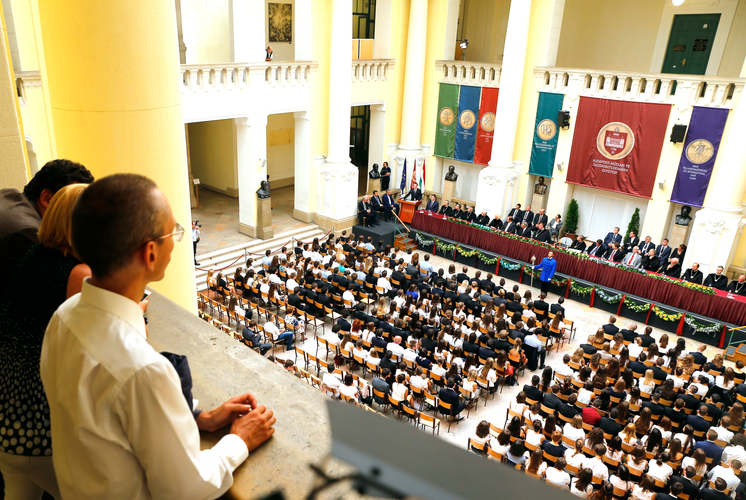The https://english.atlatszo.hu use cookies to track and profile customers such as action tags and pixel tracking on our website to assist our marketing. On our website we use technical, analytical, marketing and preference cookies. These are necessary for our site to work properly and to give us inforamation about how our site is used. See Cookies Policy
One of the last public universities in Hungary is facing privatization post-election
The leaders of the Budapest University of Technology (BME) have discussed the privatization of the Budapest University of Technology and Economics, one of the last fully state-owned universities left in Hungary, two staff members told Atlatszo. According to them, the minister does not exclude the possibility of transferring BME to a trust, but he would rather not do it before the elections.
Last year, the Forum of Academic Workers and Átlátszó launched the TudoLeaks whistleblowing platform, through which whistleblowers can send information on issues related to higher education anonymously. Recently, an employee of the Budapest University of Technology and Economics (BME) contacted Átlátszó through the platform, who said that the possibility of a trust taking over the currently state-owned university, just like many other institutions, has recently been discussed at high levels.

BME is one of the last public universities
The Orbán government of Hungary begin outsourcing higher education to semi-private trust in 2019 whit the restructuring of the Corvinus University of Budapest. The change of model represents a kind of privatization since elected state officials no longer have any official say in the internal affairs of the trust running the university. Essentially, the government can only appoint the first members of the board of trustees (in the case of Corvinus, this is how Zsolt Hernádi, CEO of MOL, was elected to the board of trustees, for example, and was also elected chairman), who are then given free rein and cannot be recalled.
After the restructuring, state-subsidized education at Corvinus was completely abolished and public scholarship was replaced by a private one.
The new scholarship only covers the first year’s tuition fees, after which it is not automatically awarded until the end of the course, instead, students need to reapply every year. Since the introduction of the new system, the proportion of paying students has increased significantly compared to scholarship recipients.
The privatization of Corvinus was followed by the highly controversial restructuring of the University of Theatre and Film Arts (SZFE), where protesting students and teachers criticized the appointment of Attila Vidnyánszky, widely considered a political candidate, to lead the trust managing the university. In 2021, this was followed by the privatization of all universities outside of Budapest, as well as some institutions in the capital, including Semmelweis University. Under a law passed in spring 2021, most of the Hungarian higher education system was transferred to so-called “public trusts” (KEKVAs), which are also headed by pro-government figures, including government members and MPs.
Hidden privatization: valuable public assets transferred from the state to public trust foundations led by Orbán-allies | atlatszo.hu
In less than a year, the network of Hungarian culture commissioner Szilárd Demeter has gained a real estate portfolio worth billions of Forints. Mr. Demeter, who received international criticism over his comments about “George Soros’s gas chamber” now controls several monumental castles and lucrative cultural centers.
The trust also received the universities’ real estate, and the law on KEKVAs even allows for the sale of properties to private business operators. Many believe that this is nothing more than a wave of privatization and the distribution of national wealth among the most influential Fidesz players, who could then hold considerable wealth and power even after a change of government.
The chancellor supports it, the rector does not
Of the largest universities in Hungary, two remain state-owned: ELTE and BME. It is unclear, however, how long will they remain so: a BME employee, who asked to remain anonymous, told Átlátszó that there is a desire to change the BME model, both among some university leaders and in government circles.
As he stated, the university’s leaders met with László Palkovics, head of the Ministry of Innovation and Technology,
in Zalaegerszeg on 15 January. Palkovics has played a key role in the foundation of higher education, as he was also involved in the restructuring of Corvinus.
A report of the meeting between the university leaders (the rector, chancellor, vice-rectors, vice-chancellor and deans of the BME), Palkovics and Balázs Hankó, deputy state secretary for higher education, is also available on the BME website, where it is stated that the purpose of the visit was to “give the BME leadership a comprehensive picture of the innovation ecosystem that is currently being built around the ZalaZone automotive test track”. However, according to another BME staff member interviewed by Átlátszó, the meeting also touched on the issue of privatization, which some of the deans and chancellor (a position created 2012, mainly responsible for finances) Attila Kotán would support.
In an interview published on the BME website in December, Attila Kotán said, “I personally regret that the BME – let’s say in the first round – was left out of the changes”, referencing the restructuring of other universities.
He said that the trust model could bring “very tangible additional resources” to BME, as well as the ability to better compete with other universities in Hungary. The chancellor also said that he “currently has a difference of opinion” with the rector and the majority of the university community on the issue.
“Let’s come back to it after the election”
Another university staff member, who also asked to remain anonymous, confirmed to Átlátszó that the trust model was discussed on the meeting. According to the trust member, the issue was brought up by some BME officials who informally asked Palkovics to initiate the privatization process. According to our BME sources,
Palkovics hinted that the government will not try to implement changes before the April 3 national elections, but after it “they can come back to it”.
He then asked for reports on plans for the development of BME.
We also contacted the press department of the Ministry of Innovation and Technology to ask whether they support a change of model for universities that remain state-owned and whether they could initiate the process before the elections. We had not received a reply by the time of publication of this article. We will update our article if the ministry responds.
One university source said that the model change is backed by a minority of university leaders, including the government-appointed chancellor and some deans, while the rector, Tibor Czigány, who was elected last year is totally opposed to the change.
Fewer grants, smaller raises
However, they say that the majority opinion could switch due to financial issues: since the privatization of most universities, institutions remaining under state control are receiving comparatively less funding. The list on the website of the National Research, Development, and Innovation Office (NKFIH), the organ responsible for university research and development grants, shows that BME won around 2.75 billion HUF in 2021, more than in the previous year, but significantly less than other, smaller universities that were transferred to private trust just months ago.
This year, employees of both private and public universities were promised a 15 percent pay rise by the government. However, many public universities have independently been rising wages on top of that bonus, thanks to increased government grants.
Sources at BME believe that the government’s aim is to limit grants to “persuade” the remaining state universities, including BME, to ask for a change of model themselves.
University staff members speculate that Palkovics could be on the board of trustees of a BME foundation, as he has not yet been given a position in any of the KEKVAs, despite his central role in the outsourcing process.
In an interview with Magyar Nemzet in March last year, István Stumpf, the government commissioner for higher education, said that he thought that a foundation structure would be “much more appropriate” for BME than for some universities, “but they will decide whether they want to join in the future.”
Written and translated by Zalán Zubor. The original, Hungarian version of this article can be found here.
Support independent investigative journalism in Hungary, become a patron of Atlatszo on Patreon!

